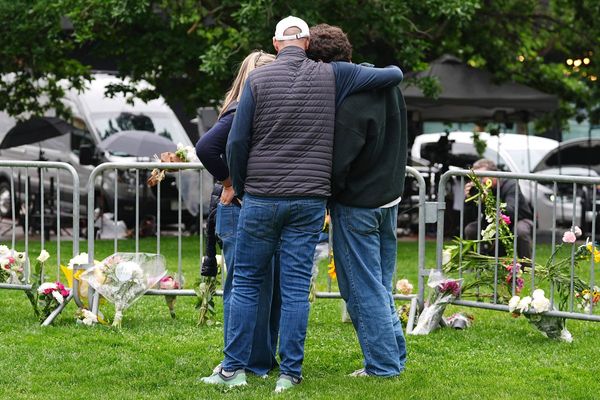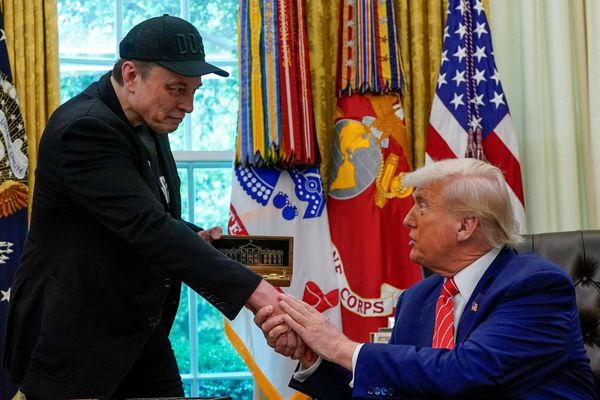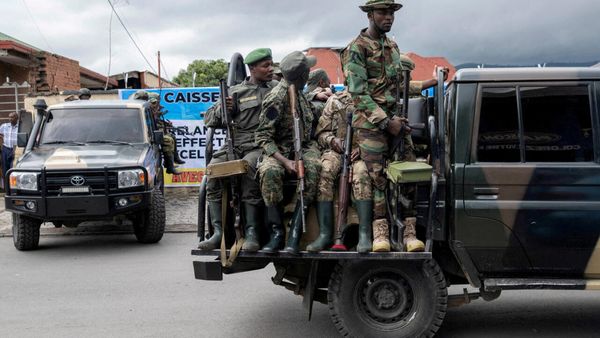
One day in September, Regina Catrambone and her crew-mates spotted a wooden blue boat full of refugees floating in the southern Mediterranean. This in itself wasn’t shocking: Catrambone and her charity, the Migrant Offshore Aid Station (Moas), operate a ship in these waters specifically to rescue these kinds of boats. But what happened next was a surprise.
Of the 300-odd refugees Catrambone’s colleagues subsequently rescued from the boat, 113 of them were children. “For us it was the biggest number of children we’d ever saved in one rescue,” says Catrambone. “And I felt happy – because we are a family, and we were helping to save other families.”
This is no metaphor. Moas was founded by the Catrambone clan in 2014 – after Regina, her husband Chris, and her daughter Maria Luisa, decided to do something about the growing numbers of migrants dying as they tried to sail from Libya to Italy. Having made a small fortune in the insurance business, the Catrambones bought a boat, hired a crew, and set to work in the waters north of Libya. As European governments dithered over whether to continue with their rescue missions, and as record numbers of people drowned, the Catrambone family got on with the job of saving lives.
To date, they have saved nearly 12,000 people.
It’s a task that Catrambone says has become ever more urgent amid the backlash against refugees that followed the Paris attacks. “We need to be united with the refugees,” she says. “They are the most vulnerable people in this situation – even more vulnerable than us.”
Many of the people Moas has saved are fleeing exactly the same terrorists that the west is so afraid of. To get to the Libyan shore, Eritrean refugees usually have to pass through territory controlled by the Libyan affiliate of Islamic State. Hundreds of refugees have been captured by Isis, and dozens executed. Without the money to return to their homes elsewhere in Africa, the Mediterranean Sea is often their only escape.
But to reach the sea, refugees need first to place their lives in the hands of Libya’s people-smugglers, many of whom are just as brutal as the jihadi. Smugglers often torture their so-called customers until they pay for the cost of the boat trip – and female migrants are treated worst of all. Onboard the Moas ship, women described to Catrambone how they were separated from their husbands and then abused.
“They’d be put into a small room,” says Catrambone, who gives pastoral care while onboard, “and then during the night, men would come in and rape them.” One woman said that she would bite into her clothes so that her child, sleeping next to her, would not hear her screams.
These are the kinds of people that Moas helps, day in and day out, on the Mediterranean. And the charity is now poised to help many thousands more. On 18 December, Moas will send a new boat to the Aegean sea, to help rescue stricken people – mainly Syrian, Afghan and Iraqi refugees – if they run into difficulty while trying to reach Greece from Turkey. The new boat’s two dinghies will be called Alan and Galip, named for the two Syrian toddlers whose corpses were found face-down on a Turkish beach in early September.

In the coming weeks, the main Moas boat will also begin operating in the Indian Ocean, rescuing the Rohingya refugees who are fleeing genocide in Burma. These are expanded missions that demonstrate how Moas has developed from a family-funded operation, to one increasingly reliant on the generosity of ordinary donors.
“We can’t sustain this mission ourselves in the long term,” says Catrambone, of the initial investment she and Chris put into Moas in 2014. “Two people cannot resolve this situation themselves. One nation cannot solve this situation by itself. Only if we stand together can we find a step-by-step solution.”







